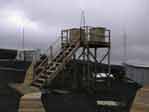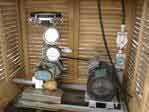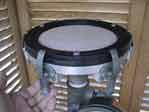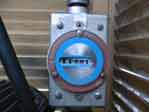More than two years after road access and electrical power to the Mauna Loa Observatory was cut off by lava flows, NOAA staff continue to make critical measurements of the atmosphere and other environmental variables at the remote site.
In 2023, observatory staff installed solar panels at the site and resumed some measurements, including the independent carbon dioxide monitoring programs run by the Global Monitoring Laboratory and Scripps Institution of Oceanography, as well as other atmospheric measurements.
Construction of a temporary road to access the observatory site is anticipated to begin in summer 2025.
Media can contact: Theo Stein (303) 819-7409 (theo.stein@noaa.gov)
Organization(s):
 US Department of Homeland Security (previously US Department of Energy)
US Department of Homeland Security (previously US Department of Energy)
What does this program measure?
Hi-volume radionuclides.
How does this program work?
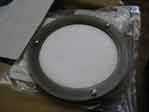
The samples are obtained by high-volume air filtration using micro-carbon filters. Weekly average samples are obtained.
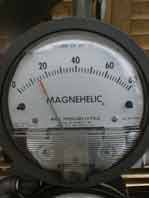
Analysis is done in the DOE NYC laboratories. MLO results are combined with similar samples taken at Point Barrow, Alaska (BRW), American Samoa (SMO), and South Pole Observatory (SPO). Similar filter samples are collected at the other CMDL observatories.
Why is this research important?
Since January 1963, the Environmental Measurements Laboratory (EML) has conducted the Surface Air Sampling Program (SASP) to study the spatial and temporal distribution of specific natural and anthropogenic radionuclides in the surface ambient air.
Are there any trends in the data?
How does this program fit into the big picture?
What is it's role in global climate change?
Comments and References
This project is no longer active.
Lead Investigator(s):
Fabian Raccah
212-620-3793
MLO Contact(s):
Darryl Kuniyuki
808-933-6965 (x236)
Web Site(s)
http://www.eml.doe.gov/
databases/sasp
Date Started
February, 1982
RETIRED

